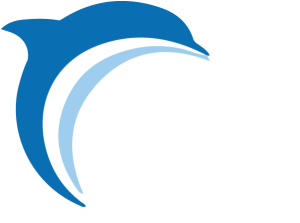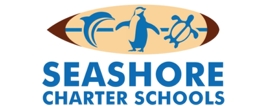
Seashore Learning Center
Curriculum & Assessment
Curriculum
The SLC curriculum is a living document, where adjustments and revisions are continually made. It is through this ongoing process of informed evaluation that the curriculum maintains relevance and rigor.
For more information about developmentally appropriate practice (DAP), a good place to start is https://www.naeyc.org/DAP or Developmentally Appropriate Practice in Early Childhood Programs Serving Children from Birth through Age 8, Third Edition by Carol Copple and Sue Bredekamp, eds.
19 Texas Administrative Code (TAC) Section 89.1250 requires districts to provide a summer school program for limited English proficient (LEP) students who will be eligible for admission to kindergarten and first grade at the beginning of the next school year. Any district required to offer the program that has less than ten students district-wide desiring to participate is not required to operate the program. If you feel your child would qualify to attend summer school as an incoming LEP kindergarten or first grade student please contact Trina Jones Bonham, Director, at [email protected].
instruction
Teacher lesson design addresses the Texas Essential Knowledge and Skills (TEKS) along with the level of Bloom’s Taxonomy, instructional grouping, cooperative learning, use of technology, assessment, modifications, and evaluation.
Teaching methods are continually refined in order to strengthen Seashore students’ instruction. Seashore Learning Center’s child-centered curriculum contains active student learning and differentiated instruction. Children work collaboratively and have many opportunities for peer interaction, as well as time to work alone or with the whole group. Instruction is designed with the active learner in mind, with a focus on investigating problems or creating products that are meaningful to the child.
Classrooms are arranged to support flexible grouping and create a child-centered environment. A variety of comfortable work areas, accessible materials, and an orderly, purposeful classroom structure support engaging learning experiences.
Class size does not exceed 20 students at grades K-4.
Teachers are aware of the continuum of standards and learning expectations above and below their assignment, and use differentiated instructional strategies to address the wide various ability levels in their classroom. They select instructional strategies that are appropriate to the students and the assigned tasks. Teachers also encourage students to set their standards high by trying challenging problems and activities that test their abilities and persistence.
Instructional strategies may include, but are not limited to: centers, computer technology, conferencing, cooperative learning, demonstrations, direct instruction, discovery lessons, discussions, modeling, peer tutoring, posing problems or complex tasks to be solved, tiered assignments, and use of manipulatives/tools of the discipline.
Physical activities are incorporated into instruction wherever appropriate. Concepts are introduced in a concrete form, with the teacher modeling and multiple opportunities for the child to manipulate/participate. Concrete experiences are followed by pictorial representations by the teacher and the child, ultimately leading to instruction of the concept in an abstract form.
Field experiences, class visitors, and technology-based experiences are regularly used as a means of enriching the curriculum and broadening the children’s exposure to new vocabulary and ideas.
assessment
The Seashore curriculum incorporates skills checklists where all Texas Essential Knowledge and Skills are located for each grade level. All core areas (i.e., reading, mathematics, science, and social studies) skills checklists addressed in each nine weeks are provided to parents for review through student-led conferences.
Instructional improvements and campus planning occur directly from the outcome of the iStation Indicator of Performance (ISIP) and the State of Texas Assessments of Academic Readiness (STAAR™).
Various methods are used to identify the educational strengths and needs of individual students, including providing opportunities for students to evaluate and correct their own work. Seashore’s focus on mastery allows students and teachers to see errors as opportunities for growth. In addition to state testing, Seashore Learning Center uses performance-based assessments such as in-depth projects, portfolios, presentations, student led conferences, student made products, and teacher observation/judgment. Reading and math assessment tools are used to assess academic readiness at the beginning and end of each year. Pre- and post-assessments are shared with parents at the end of the year.
Portfolios should include 1-2 items the teacher and student select per subject to reflect student growth and accomplishments. In addition to work samples, class projects and student demonstration of activities may be included. Parents are required to attend all student-led conferences.
Screenings and evaluations related to 504 identification and special education services are conducted in accordance with state and federal law. Students identified as struggling in an academic area are assessed and provided additional services through the Response to Intervention (RTI) process, including in class remediation, after school tutorials, and/or in-school intervention services. For more information or questions, please contact Megan Blanton via email at [email protected] or call 361-949-1222 ext. 239.
